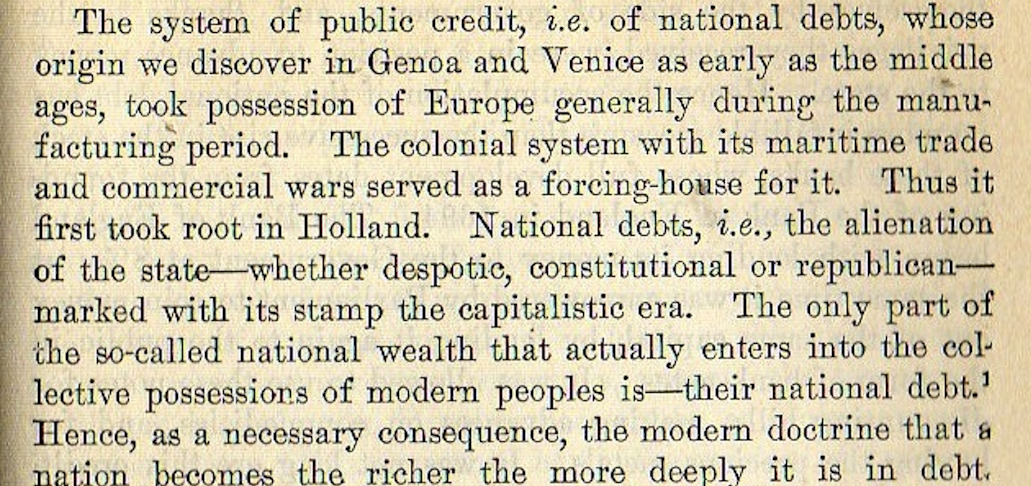On October 31st the centre of the city of Buenos Aires was put on lockdown by the police, the military, and secret services. Martial law provisions were to continue for three days. US aircraft carriers lay offshore on the river plate and the airspace over the city closed. 40,000 police were on the streets of the city to protect twenty top government representatives and a few multilateral bankers; men and women like to refer to themselves as ‘leaders’.
(c) http://www.criticatac.ro/lefteast/the-g20-and-the-counter-protests-in-argentina/
Continue reading The G20 and the Counter-Protests in Argentina
Category Archives: English
Multinationals suing Countries; Argentina’s Debt
The following article is written by Tony Phillips an Irish and Argentine economist specialising in the build up to and the consequences of excessive national debt. He is Editor (with Nobel Laureate Joseph Stiglitz and former Argentine minister for economics Roberto Lavagna) of his most recent book: “Europe on the Brink; Debt Crisis and dissent in the European Periphery” which is published in English, Spanish and Portuguese. (Ya también disponible en Castellano bajo el título “
The article gives an account of Argentina’s woes in defending itself in what was then 37 tribunal cases taken against Argentina in the World Bank arbitration court called the ICSID (International Centre for Settlement of investor Disputes). The ICSID is an Investor-State Dispute Settlement tribunal (SDS) that is it is a tribunal where private corporations can sue governments (via Bilateral Investment Treaties) for claims in investment losses (including future profits). The European Union (EU) is currently trying to make member states vulnerable to such law suits by signing trade and investment agreements such as TTIP which have ISDS built into them.
Continue reading Multinationals suing Countries; Argentina’s Debt
A Europe Without Solidarity: Debt Crisis and the Failure of the Neoliberals
(Interview by Ramor Ryan published in the US journal “Toward Freedom”)
A Europe Without Solidarity: Debt Crisis and the Failure of the Neoliberals; Written by Ramor Ryan, Published: 29 September 2015
Interview with Tony Phillips, editor of Europe on the Brink: Debt Crisis and Dissent in the European Periphery (Zed Books)
The current European sovereign debt crisis has the capacity of jeopardizing the whole European Union project with devastating social consequences. Tony Phillips’ new book Europe on the Brink investigates the root causes of the crisis, critiques its mismanagement spearheaded by the European Central Bank, the EU Commission and the International Monetary Fund (collectively called the Troika), and suggests alternatives. Bringing together eight leading critical economists and sociologists, including Nobel Laureate Joseph Stiglitz, Europe on the Brink portrays a European Union that is increasingly authoritarian and non-democratic, where the rule of law and the well-being of the people are brushed aside in the interests of balancing the books and imposing a neoliberal agenda. Continue reading A Europe Without Solidarity: Debt Crisis and the Failure of the Neoliberals
The Secret Bank Bailout; who exactly are the Eurozone taxpayers funding and why?
The documentaries from Harald Schumann wocomo documentaries are some of the best one I have seen on the European Sovereign Debt Crisis and is an excellent resource for education in all of the nations involved. For those interested in distributing this film please see the following link at the newdocs site in Germany: http://www.newdocs.de/wp-content/uploads/2013/03/Flyer_The-Secret-Bank-Bailout.pdf
Continue reading The Secret Bank Bailout; who exactly are the Eurozone taxpayers funding and why?
Austerity not an option
Roberto Lavagna, Buenos Aires, December 2014
Economic policies –and thus social policies too – are often presented as inevitable outcomes, when facing certain circumstances. Those who tend to support the inevitability of such responses are members of formal and informal coalitions –more precisely ‘powers’ – which bring together multilateral organizations (the IMF and the World Bank) with local orthodox economic and conservative actors with both international and local financial interests (in the wider sense of this term).
Continue reading Austerity not an option
Argentina’s Warning on Sovereign Debt

The sum of the sovereign debt emissions by all of the world’s treasuries constitutes an enormous financial market concentrated in a few principal currencies and legal jurisdictions. The money that circulates in these markets is the world’s government (sovereign) debt. These bonds are typically bought by the private sector, but are ultimately paid back (both the principal and the interest) by local taxpayers in the borrowing States. Investors (bond buyers) profit from regular interest payments and an eventual repayment of the principal capital sum. Bonds (or gilts as they are called in the UK) are considered a safer investment than shares in public companies and are often bought by pension funds.
Or at least that is how things used to work.
Continue reading Argentina’s Warning on Sovereign Debt







